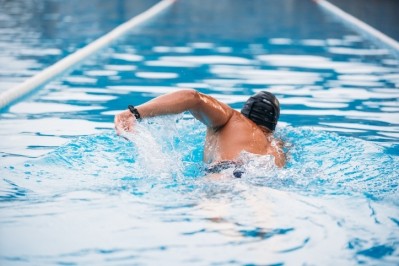Latest rice protein study shows ingredient as viable as whey for strength training

New research shows that a moderate does of rice protein performs just as well as a similar amount of whey in supporting resistance training. This confirms earlier research done with higher doses.
The research was published recently in the Journal of the International Society of Sports Nutrition. It was performed by a group of researchers that includes Dr Ralf Jäger, PhD, of the Milwaukee, WI-based consulting firm Increnovo LLC.
Whey built up big evidence lead
Whey protein dominates the sports nutrition category. The protein’s fast absorption profile first excited the interest of sports nutrition researchers, leading to studies looking at whether quick absorption would lead to greater gains in muscle protein synthesis.
This has led whey having a much bigger research portfolio than other proteins that have been isolated for use in sports nutrition products. For example, in an ISSN position paper on protein and exercise, a search on ‘whey’ brings up 135 uses of that term. Substituting ‘rice’ as a search term brings up nine instances.
But being first doesn’t necessarily mean best. A study published in 2018 investigated the effects of 48 grams of rice protein compared to the same dosage of whey and found the two proteins yielded similar results. The rice protein the researchers chose for the study was Growing Naturals’ Organic Rice Protein made with Axiom Food’s Oryzatein.
The recent JISSN paper uses the same rice protein, except in a 24 gram dose. This was matched against the same dosage of whey protein supplied by NutraBio Labs, Inc.
New study looks at more conventional dosage
The study design was similar between the two papers, too. In the most recent study, the researchers recruited 24 healthy young resistance-trained men. The completed a resistance training regimen for eight weeks while consuming either the rice or whey proteins.
The lower dose was important, the researchers said, because while the results of the 48 g study were intriguing, that dosage is far more than what is normally consumed or what is recommended in the scientific literature, in which dosages of between 20 g and 30 g at a sitting are considered optimum.
The researchers divided the 24 men into two groups, matched according to fat free mass. The subjects complete eight weeks of a split body, periodized weight training regimen of the sort that is common in the industry. This protocol consists of two upper body and two lower body weight lifting sessions per week.
Rice equals whey in principal outcomes
The results of the study confirmed the earlier, high dose study. Both sets of subjects, those using rice protein and those using whey, had similar results.
“In accordance with the findings [of the earlier study] results from the present study identified significant improvements in body mass and fat-free mass with no differences between protein sources,” the authors wrote.
When speaking with NutraIngredients-USA in 2018, David Janow, CEO and founder of Axiom Foods, said convincing sports nutrition customers that plant based proteins were viable choice to support strength training was one of his company’s early hurdles. Janow said he’s been in rice protein development for more than 15 years, and in the early days strength trainers were focused on things like eating a dozen raw eggs at a time.
“The hardest part was to get the body builders and weight trainers to see that plant based proteins could be a viable alternative,” Janow said.
But the results of the 48 g study, reinforced with these latest results at 24 g means that picture has changed. Rice protein isolate is “not taking whey’s trophy away," said Janow, “but we now share that trophy.”
Source: Journal of the International Society of Sports Nutrition
17, Article number: 60 (2020)
Effects of daily 24-gram doses of rice or whey protein on resistance training adaptations in trained males
Authors: Moon JM, et al.
Sports Nutrition Summit
Dr Ralf Jäger will be one of the participants in NutraIngredients-USA’s upcoming Sports Nutrition Summit, which this year will take place as a virtual event. Dr Jäger is scheduled to speak on the event’s second day, on Feb 4, 2021. That day is focused on the microbiome. The first session of the event, on Jan. 28, will focus on a market overview with other sessions focusing on recovery (Feb. 18), and the female athlete and esports opportunities (Feb. 25). Stay tuned to NutraIngredients-USA for more details on this FREE event.
















